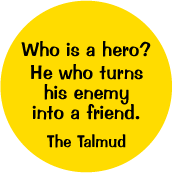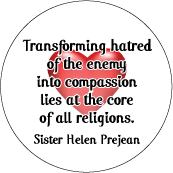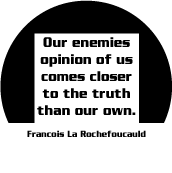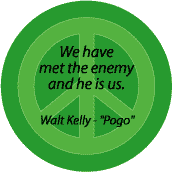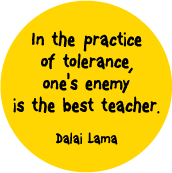He did
Not necessarily
Believe
In evil
Though he found it
Much easier
To commit
Than endure
And hear in lies
Won lessen
As love is scored
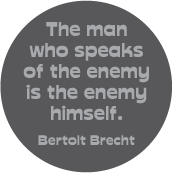 This poem is a tribute to apologists for evil everywhere. The lesser of two evils rationalization is perhaps the all-time most popular moral shortcut. Unfortunately, when evil is embraced, morality is cut loose. The “necessity” defense is actually an abnegation of moral agency altogether, pretending that no choice exists. Of course, where there is no choice, there is no morality, or perhaps more conveniently, no immorality. So much for freedom marching on! For you can’t have freedom without its twin: responsibility, that bully big brother.
This poem is a tribute to apologists for evil everywhere. The lesser of two evils rationalization is perhaps the all-time most popular moral shortcut. Unfortunately, when evil is embraced, morality is cut loose. The “necessity” defense is actually an abnegation of moral agency altogether, pretending that no choice exists. Of course, where there is no choice, there is no morality, or perhaps more conveniently, no immorality. So much for freedom marching on! For you can’t have freedom without its twin: responsibility, that bully big brother. 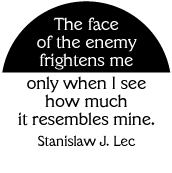 Ultimately, one’s own responsibility is morphed out of existence into an other’s accountability. He “made me” do it. As we become an impersonal — and amoral — force for precious accountability, we polish a veneer of morality, all the wile avoiding personal responsibility for our own actions. Most simply put, we become mirrorly a consequence of evil, our moral agency be dammed! We become an effect of evil rather than a cause for good. Morality necessarily involves restraint, the project of limiting our choices, hopefully to good choices, among all possible choices. The key point is that it focuses on self-restraint, not other-restraint.
Ultimately, one’s own responsibility is morphed out of existence into an other’s accountability. He “made me” do it. As we become an impersonal — and amoral — force for precious accountability, we polish a veneer of morality, all the wile avoiding personal responsibility for our own actions. Most simply put, we become mirrorly a consequence of evil, our moral agency be dammed! We become an effect of evil rather than a cause for good. Morality necessarily involves restraint, the project of limiting our choices, hopefully to good choices, among all possible choices. The key point is that it focuses on self-restraint, not other-restraint. 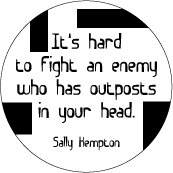 This shift of focus on accountability of others, presumably punishing evil, is classical psychological projection of one’s own shadow, dark side, evil onto an other. No doubt, evil happens. No doubt, evil costs dearly. Projecting all responsibility onto others serves the convenient purpose of shifting the cost away from our own costly choices. No doubt, morality is costly — just as evil is. Enduring these costs is the stuff of a moral life. This is the price of true freedom. Evil runs over the good for evil ends, for its own sake. Good revels in the good for its own sake, and somewhat paradoxically, lifts up, invites true freedom for others’ sake as well
This shift of focus on accountability of others, presumably punishing evil, is classical psychological projection of one’s own shadow, dark side, evil onto an other. No doubt, evil happens. No doubt, evil costs dearly. Projecting all responsibility onto others serves the convenient purpose of shifting the cost away from our own costly choices. No doubt, morality is costly — just as evil is. Enduring these costs is the stuff of a moral life. This is the price of true freedom. Evil runs over the good for evil ends, for its own sake. Good revels in the good for its own sake, and somewhat paradoxically, lifts up, invites true freedom for others’ sake as well 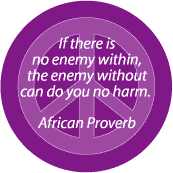 Half of the moral life is the willingness to live into what we know to be good. Half of the moral life is enduring the inescapable effects of evil, what we no to be evil. Only God knows the half-life of evil. While it may be a truism that we do not get out of this life alive, we can live more than a half-life. May you live fully! Moral choices may be unclear. Moral choices may be extraordinarily difficult. Still, moral choices are always a choice. To deny this is the paltry heights of amorality and a brutal equivalency of evil with good.
Half of the moral life is the willingness to live into what we know to be good. Half of the moral life is enduring the inescapable effects of evil, what we no to be evil. Only God knows the half-life of evil. While it may be a truism that we do not get out of this life alive, we can live more than a half-life. May you live fully! Moral choices may be unclear. Moral choices may be extraordinarily difficult. Still, moral choices are always a choice. To deny this is the paltry heights of amorality and a brutal equivalency of evil with good.
May you find wide-open love stronger than shadowy hate in your life.

